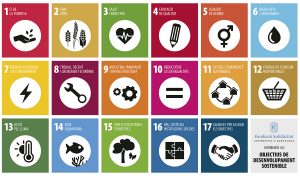The global rate of enrollment at universities is of 36 percent, but only 3 percent of refugees have access to higher education.
To change this situation, the United Nations High Commissioner for Refugees (UNHCR) has committed to ensuring that 15 percent of young refugee women and men can access the benefits of higher education by the year 2030. It’s the so-called 15by30 target.
The University of Barcelona, within its actions of social responsibility, equality and cooperation, has been contributing to this goal since 2015 through the Support Program for Refugees and People from Conflict Areas. As part of the program, a transition course to university studies is held, which annually receives 15 young people from conflict areas. Beyond a scholarship to study, the program provides comprehensive support to these people in the line of so-called safe pathways complementary to resettlement in third countries.
Documentary video “Universitat refugi” (Nanouk Films, 2019)
During the 2019-2020 academic year, like all academic activities, the University Transition Course has been affected by the measures taken to control the effects of the #Covid19 pandemic. Two of the young people selected for the program were unable to travel despite having their study visas processed. Three students have not been able to complete the visa application process. And the ten students who have arrived in Barcelona have had to deal with confinement at the same time as they began a project to rebuild life in a new host society. All the students of the course have been able to follow the virtual classes, but in quite different conditions.
On June 20, International Refugee Day, we will share some of their stories and first impressions in Barcelona with the aim of making visible the realities of young refugees, particularly those who have opted to pursue a university career in Barcelona. The action is in addition to the local activities carried out both by Barcelona Ciutat Refugi and by numerous entities, as well as the UNHCR global campaign, which this year has as its motto “”All action counts“.
Testimonials from students in the current class will be posted under the hashtag #UBRefugi2020. They will be accompanied by a series of photographs of the Moria refugee camp in Lesbos, taken in November 2019 by the program coordinator, Cati Jerez, during a working visit. The camp is one of the most representative places of the impact of the lack of policies to protect the human rights of migrants and refugees.
In this context, we also invite you to retrieve the webinar on refugee camps in the series “Solidarity and Human Rights in the Time of Covid 19”. The session, held on 11 May 2020, was attended by the spokesperson and head of communications of the United Nations High Commissioner for Refugees (UNHCR) in Spain, María Jesús Vega Pascual; Lesbos Legal Center lawyer Lorraine Lette; and the testimony of student Roger Subira, who is taking the University Transition Course from the Rwamanja camp in Uganda.










